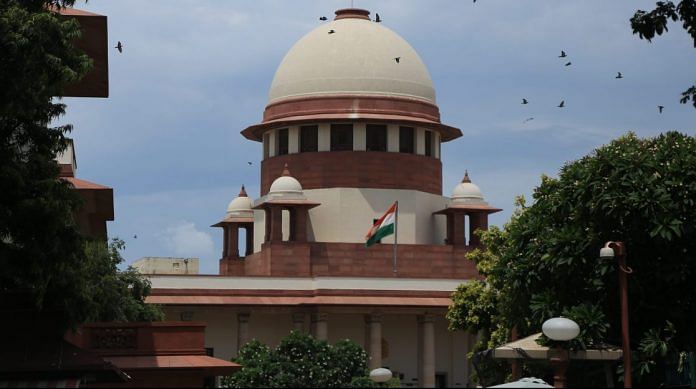However, a three-judge bench led by CJI withdraws family welfare committees it had mandated to vet complaints filed by women under the law.
New Delhi: The Supreme Court retracted Friday one of the ‘guidelines’ it issued last year to prevent the misuse of Section 498A of the Indian Penal Code, which seeks to curb harassment for dowry and domestic violence.
A three-judge bench headed by CJI Dipak Misra, holding the rest of the July 2017 ruling valid, withdrew only the family welfare committees it had mandated to vet complaints filed by women under the law.
This was one of 15 guidelines issued by another bench of the court in a ruling slammed by women’s rights activists for “diluting the law”.
The bench has retained the contentious guideline that restricts immediate arrest of husband and his family under this law, commonly referred to as the anti-dowry provision.
The law was brought in 1983 to prevent violence against women in their marital homes.
Also read: BJP MPs want a men’s commission, say women are ruining marriages
The fresh order comes on a batch of petitions seeking reconsideration of the earlier order.
A CJI-led bench had, in October last year, agreed to review the July 2017 ruling. On 23 April this year, the CJI bench reserved its judgment on the review pleas.
“We will only see whether the order was passed to fill gaps in law. Whether such an order is permissible under Article 142 and whether that order takes out the spirit of Section 498A,” Chief Justice Misra observed while reserving the order.
“Section 498A protects gender justice and rights. There should not be any kind of cruel treatment of women… But the liberty of husbands is also a factor,” he had added.
The judgment of guidelines
In July 2017, a bench comprising justices A.K. Goel and U.U. Lalit had issued elaborate guidelines for police personnel and magistrates handling cases under Section 498A.
The court had restricted immediate arrest of the husband and his family, as provided under the law, except if it involved death or physical assault. This was meant to prevent the misuse of the law.
The court also said that all complaints under Section 498A would have to be first assessed by a three-member, district-level committee.
The court cited statistics from the National Crime Records Bureau to establish that the law was misused. While a chargesheet was filed in 90 per cent of the cases filed under Section 498A, the conviction rate was less than 15 per cent, the court noted.
Also read: How Supreme Court’s fresh ruling on Section 377 rips apart its ‘perverse’ 2013 judgment
Incidentally, on 20 March, the same bench also delivered a similar ruling restricting police from making immediate arrests under the Scheduled Castes and Scheduled Tribes (prevention of atrocities) Act to prevent “misuse” of the law.
No stay on order
Although the apex court agreed to reconsider the July 2017 ruling on 498A, it did not stay the controversial verdict, allowing states to set up the family welfare panels.
The court had appointed senior advocate Indu Malhotra, who is now a judge of the apex court, as amicus curiae. The amicus and the central government had told the court to reconsider its previous ruling.




SC court told earlier that police wont come to passport applicant house for verification because they are corrupted. Now, leaving the power to police in dowry cases.
Immediate / automatic arrest, with no preliminary enquiry or application of mind, is anathema to the rule of law. Whether it is in cases of dowry related violence or atrocities against Dalits. It should be no reasonable person’s case that having a sledgehammer on the statute books makes women or socially less privileged people more safe.